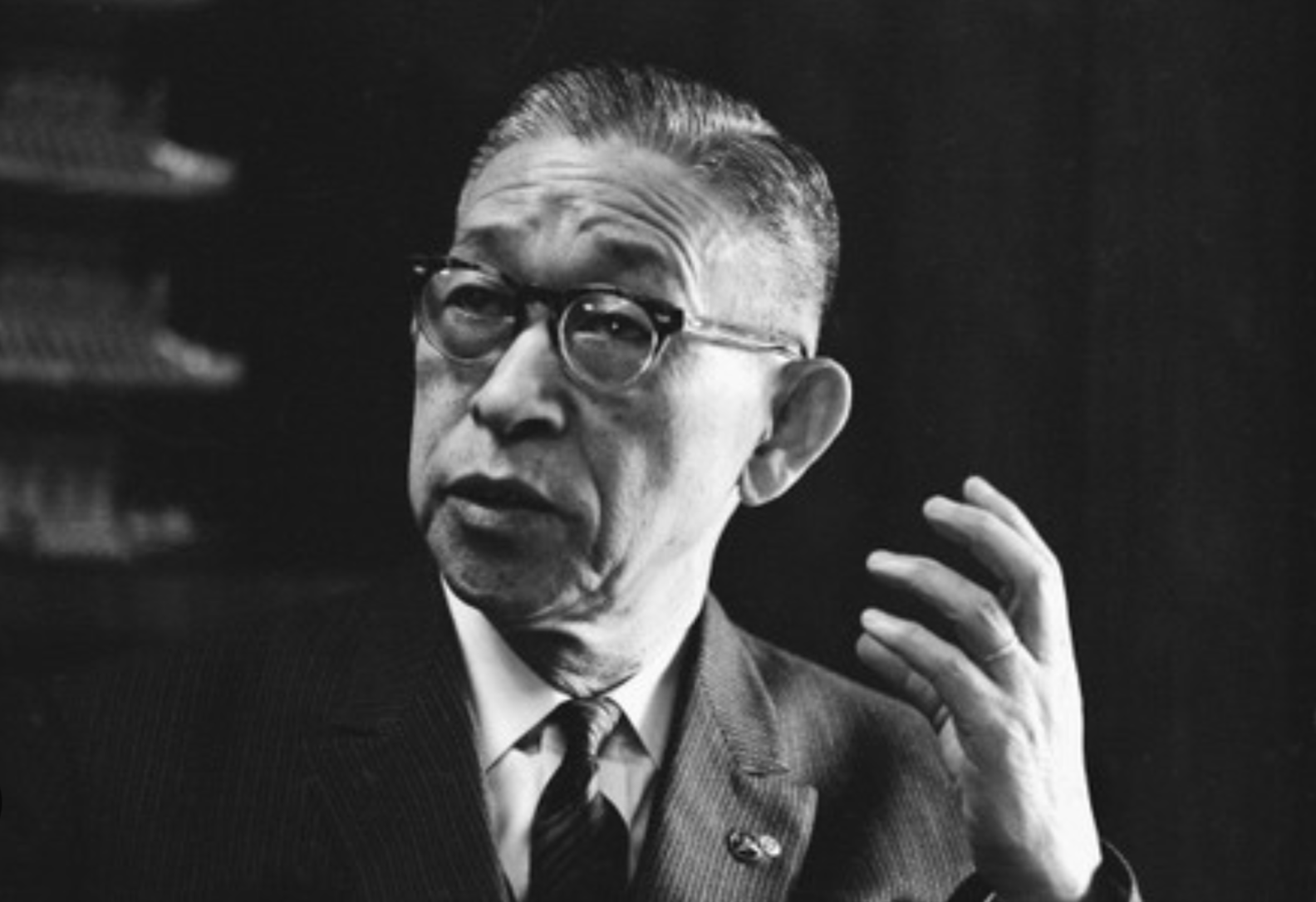Matsushita Konosuke, considered a "business saint" and the "father of Japanese business methods," built his life's work on a philosophy rooted in reflections on human nature, a journey that began with family tragedy.
Born in 1894 into a well-off family, Matsushita’s early life took a drastic turn when his family went bankrupt. At the age of 4, he lost his home and his family was scattered. By 9, he was working as a servant in Osaka. This experience, though difficult, provided his first lessons in commerce.
Tragedy continued to strike as his parents and six siblings died from tuberculosis. These losses led him to contemplate life, death, and the human condition.
From these reflections, he concluded that "humans are great beings," each possessing an "inner diamond" and reigning as "kings of all things."
This belief instilled in Matsushita a sense of responsibility. "Since humans are kings," he emphasized, "they must fulfill a king's responsibilities."
He believed that war and violence stemmed from disrespect for others. Conversely, recognizing the "inviolable dignity of each person" fosters respect and responsibility. He argued that societal problems arose from a limited view of humanity, leading to limited expectations of responsibility.
When asked about his philosophy, he summarized it as "ningen daiji" (valuing people).
 |
Matsushita Konosuke. Photo: Shutterstock |
Matsushita Konosuke. Photo: Shutterstock
In 1918, at 23, Matsushita launched a small electric appliance company, the precursor to Panasonic, with an improved light socket as his first product.
His "ningen daiji" philosophy permeated the company, becoming the foundation of its management. He viewed employees, customers, and even non-customers as "great humans."
He saw his mission as creating "good products, at low prices, in large quantities," not to maximize profits, but out of a sense of responsibility to society.
Pricing should benefit everyone: customers, the company, and society. He considered dishonest business practices a crime against humanity.
He prioritized employee well-being over profits, rarely resorting to layoffs and always seeking solutions to overcome challenges together. He continually motivated, inspired, and expressed gratitude to his employees.
He adhered to the principle of never lowering prices and maintained unwavering self-confidence.
This philosophy yielded remarkable business success.
By 1931, Matsushita’s company offered 200 electrical products, including wiring devices, heating appliances, radios, and batteries, employing over 1,000 workers. In 1935, it became Mashushita Electric Industrial Co. In 1938, he developed a television prototype, and by 1941, his company had grown to over 10,000 employees.
Starting with nothing, he built a 7 trillion yen (approximately 44 billion USD at current exchange rates) corporation over his 70-year career.
Despite his accomplishments, Matsushita considered himself ordinary, lacking formal education, good health, and family support.
Yet, he transformed this perceived "ordinariness" into motivation. Acknowledging his limitations made him receptive to learning from the "great humans" around him.
His humility and belief in the greatness of humanity propelled his success, both as a businessman and a person.
Minh Phuong (Nippon)












